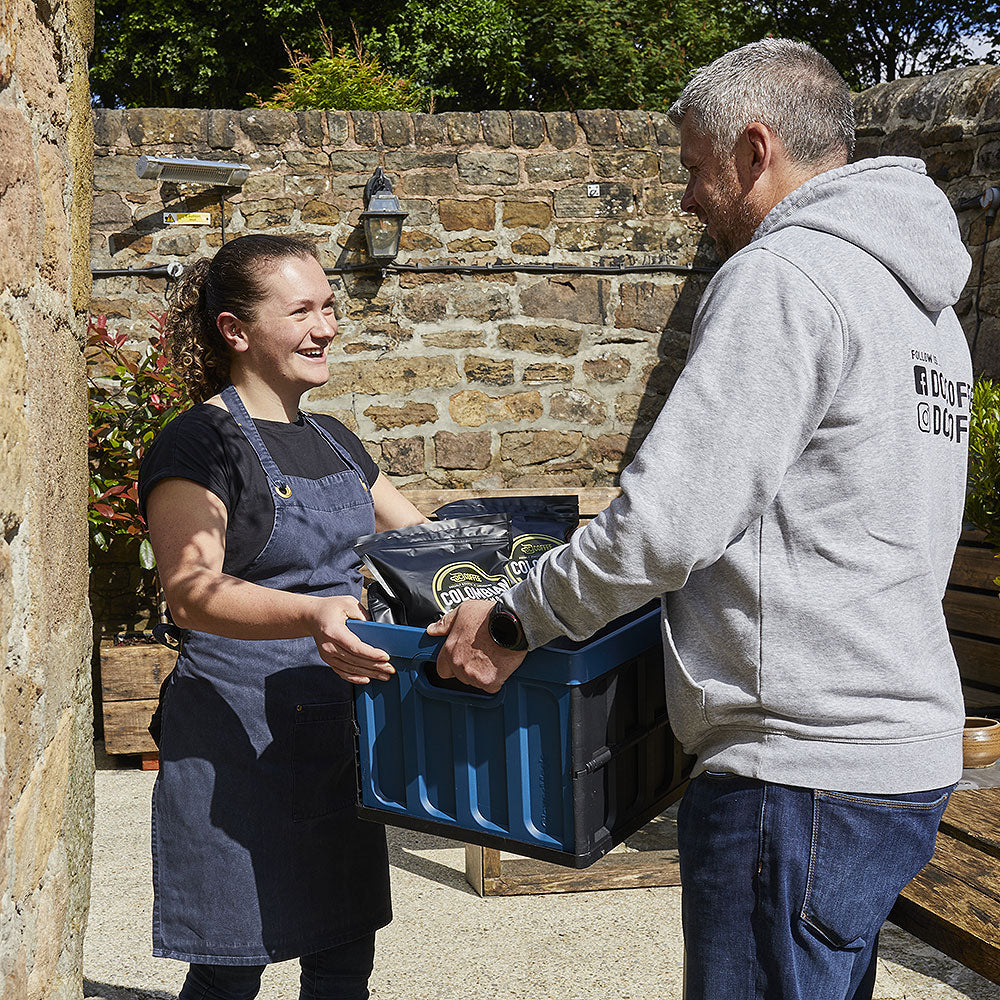Coffee and Sustainability: How Roasting Practices Support Environmental Conservation

In a world where environmental concerns are at the forefront of many discussions, it's imperative to delve into industries and practices that support sustainability. Coffee, a beloved beverage enjoyed by millions worldwide, has a complex supply chain that directly impacts the environment. From cultivation to consumption, every step in the coffee production process presents opportunities for sustainable practices. In this article, we'll focus on the crucial role that roasting practices play in promoting environmental conservation within the coffee industry.
The Environmental Impact of Coffee Production: Before we delve into roasting practices, let's first understand the environmental impact of coffee production. Coffee cultivation often involves deforestation, pesticide use, and water consumption, leading to habitat destruction and soil degradation. Additionally, the transportation of coffee beans from farms to roasters contributes to carbon emissions, further exacerbating environmental issues. However, amidst these challenges, there is hope for a more sustainable future through conscientious roasting practices.
Roasting and Sustainability: Roasting is a critical stage in the coffee production process that significantly influences the final product's flavour and quality. However, it's also a stage where sustainability initiatives can be implemented to minimise environmental impact. One such initiative is the adoption of energy-efficient roasting techniques. Traditional roasting methods often involve high energy consumption, contributing to greenhouse gas emissions. By investing in modern roasting equipment that prioritises energy efficiency, coffee roasters can reduce their carbon footprint while maintaining product quality.
Furthermore, sustainable roasting practices extend beyond energy efficiency to include waste management. Roasting generates by-products such as chaff and spent coffee grounds, which can be repurposed rather than discarded. Chaff, for example, can be composted or used as a mulching material, reducing waste sent to landfills. Additionally, spent coffee grounds can be recycled into various products, including fertilisers, cosmetics, and even biofuels. By implementing comprehensive waste management strategies, coffee roasters can minimise their environmental footprint and contribute to circular economy principles.
Supporting Sustainable Supply Chains: In addition to adopting sustainable roasting practices within their own operations, coffee roasters can support environmentally responsible supply chains. This includes sourcing coffee beans from certified organic farms that prioritise biodiversity conservation and soil health. By partnering with ethical suppliers, roasters can ensure that their products are not only of high quality but also produced in an environmentally and socially responsible manner.
Furthermore, roasters can engage in direct trade relationships with coffee farmers, bypassing conventional supply chain intermediaries. Direct trade promotes transparency, fair pricing, and long-term partnerships, empowering farmers and incentivising sustainable agricultural practices. By investing in relationships with coffee-producing communities, roasters can play a significant role in fostering socio-economic development and environmental stewardship at the grassroots level.
Consumer Education and Awareness: Ultimately, the journey towards sustainability in the coffee industry requires the participation of consumers. Coffee drinkers can support environmentally conscious roasters by making informed purchasing decisions and prioritising products that align with their values. By choosing coffee brands that emphasise sustainability and ethical sourcing, consumers can drive demand for responsible practices throughout the industry.
Moreover, consumer education plays a crucial role in fostering awareness about the environmental impact of coffee production and the importance of sustainable roasting practices. Through marketing campaigns, product labelling, and educational initiatives, coffee companies can empower consumers to make environmentally responsible choices. By highlighting the positive impact of sustainable roasting on both the environment and coffee quality, companies can inspire consumers to become advocates for change.
In conclusion, the coffee industry has the potential to be a powerful force for environmental conservation through sustainable roasting practices. By prioritising energy efficiency, waste management, and ethical sourcing, coffee roasters can minimise their environmental footprint while producing high-quality coffee. Furthermore, by engaging consumers and supporting sustainable supply chains, the industry can drive positive change towards a more sustainable future. As coffee lovers, let us raise our cups to a brighter, greener tomorrow—one sip at a time.

